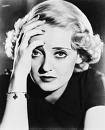The second season of Mad Men is upon us. And unlike most sophomore efforts, this season is off to a pretty respectable start.Here we have people who say they are "selling happiness" and yet none of the characters or anyone in their orbit of relationships is really happy. There is a serious and yet stylish disconnect among the inhabitants of this series. And it only makes them more challenging and appealing, not in a likeable way---more like in a fascinating, examining way. It has been said elsewhere how good the cast is-and they are. But I'd also like to add that is well-researched. Birth control pills were unreliable in 1960. And opportunities for women at that time paled compared to today. So, the roles for the women are mainly tangential to the men, except for restrained, persistent and seriously competitive and now junior copywriter Peggy Olson, wonderfully played by Elisabeth Moss. (Interesting that account executive Pete Campbell only finds Peggy attractive when she is a secretary and therefore under his control. As soon as she is bit freer-writing copy and trying to lure him to dance the Twist with her he can't handle it.
Actually, he can't handle a lot below the surface.) For women, the ceiling then wasn't glass for women-it was concrete and only a few could break through. [Some did break through, though, in real life, most notably perhaps Mary Wells Lawrence. She was the first international advertising superstar and highest paid female executive. Take a look at her bio in Ad Age http://adage.com/century/people019.html and another article in USA Today http://www.usatoday.com/money/covers/2002-05-03-wells-lawrence.htm (The Alka-Seltzer mention in Mad-Men--she is the one who came up with the slogan for it.) ] You can see the nascent emergence of the late beatnik/early hippie movements and their avant-garde ideas. But it is clear that the advertising world, like the real planet, had to start changing, and the series reflects that. The Volkswagen ad was one of the first, if not the first, ironic ads. The ad business started to evolve --some shops more slowly than others---with the changing attitudes. There probably will be some soap tricks in the second season, like Campbell wanting to finding the son he had with Peggy-and doesn't know about yet-because let's see, he and his wife will find they either cannot have children or they will lose a baby. Or something. And odds are that Joan gets her consciouness raised.
In any case, the series manages to entertain while giving a glossy glimpse into 1960's business attitudes and habits.
Thursday, July 30, 2009
Subscribe to:
Post Comments (Atom)







1 comment:
Great show. Sophisticated yet entertaining. Television needs more stuff like this.
Post a Comment